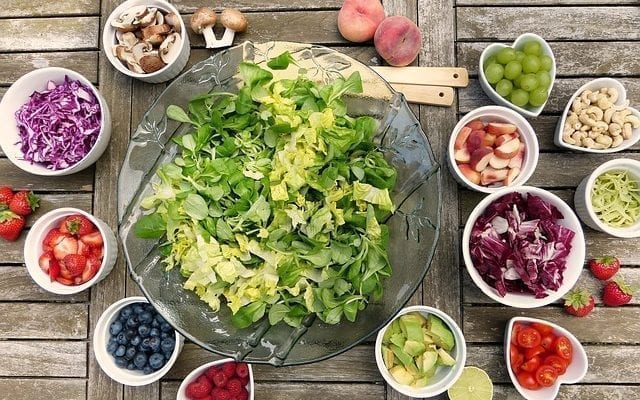
Lifestyle
Eating Vegan: The Ups and Downs
Following a vegan diet has become wildly popular in the past decade. Similar to vegetarianism, veganism refers to a way of eating where no animal-derived ingredients or foods are consumed. Most people choose to follow this diet as it leads a cruelty-free lifestyle when it comes to animals. Many people swear by the benefits afforded to them for their vegan diet and lifestyle, so lets go over pros and cons and see if its right for you.
 First, you may be wondering what people eat when following a vegan diet. How do they get a sufficient amount of protein? Well, a vegan diet includes all grains, beans, legumes, vegetables, and fruits. For protein, there are plenty of vegan versions of regular foods like hot dogs and burgers, which are made out of tofu. Several studies have shown that vegan diets are richer in certain nutrients, providing more fiber, antioxidants, and essential vitamins. The diet also consists of little to no processed fats or carbohydrates, essentially making your food intake much more natural.
First, you may be wondering what people eat when following a vegan diet. How do they get a sufficient amount of protein? Well, a vegan diet includes all grains, beans, legumes, vegetables, and fruits. For protein, there are plenty of vegan versions of regular foods like hot dogs and burgers, which are made out of tofu. Several studies have shown that vegan diets are richer in certain nutrients, providing more fiber, antioxidants, and essential vitamins. The diet also consists of little to no processed fats or carbohydrates, essentially making your food intake much more natural.
Following a vegan diet also has a large number of health benefits. Cutting out all animal meat from your diet reduces your risk for colorectal and prostate cancers. Eating a higher volume of legumes, fruits, vegetables and fiber are believed to protect against a variety of cancers. Your bone health can also increase, as eating figs, kale, peas, and turnip greens are an excellent source of calcium, the primary nutrient for healthy bones. It has also been shown that vegans absorb calcium better. People on a vegan diet also seem to have healthier hearts, as they typically eat fewer calories, which results in a lower body mass index, and reduces your risk for obesity.
While following a vegan diet will afford to you a richer amount of certain antioxidants and fiber, it can also cause a deficiency in other crucial nutrients needed for a healthy diet. Vegan diets are particularly deficient in omega-3 fatty acids, as they are typically found in eggs, fish, and other seafood. Another essential vitamin lacking in vegan diets is vitamin B-12. Not getting enough of this vitamin can cause both anemia and dementia.
Another potential downside of going vegan is having to learn new recipes, and having considerably less choice when it comes to grocery shopping. It’s also going to be more difficult when going out to eat, as not all places carry vegan options, making ordering food a little more difficult.
I spoke to Andrew Thomas, who began following a vegan diet over a year ago. Before becoming vegan, he was a voracious meat eater, and enjoyed all animal products. He became vegan after learning about the health benefits of the diet. He said, “Becoming vegan was hard at first, especially when going out, but within 2-3 weeks, I definitely felt a difference”. He went on to tell me how his vegan diet has given him more energy, and even more mental clarity. Andrew also said, “I began training for a marathon, while following a vegan diet. On the day of the race, I performed significantly better than when I did when I was eating meat every day”.
The benefits of living a vegan lifestyle has a number of benefits that comes along with it, but there are also some difficulties you may face. If you’re interested in going vegan, check out some vegan recipes, and try it out for a week or so and see how you like it.





1 Comment